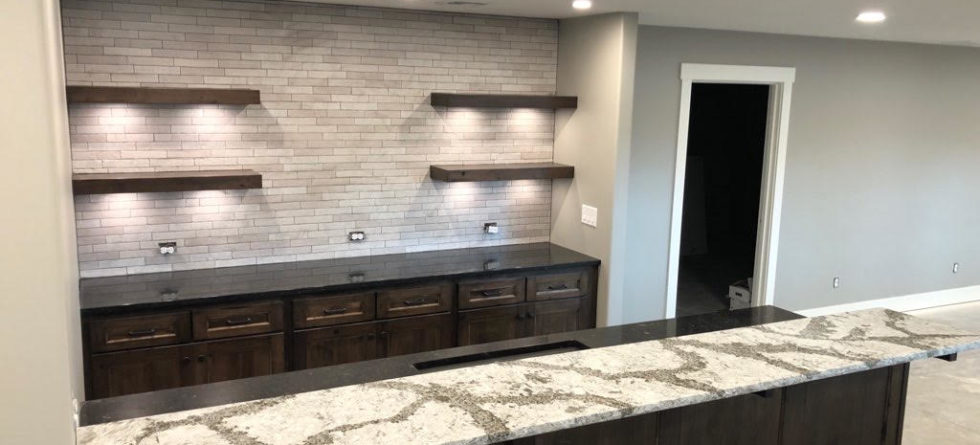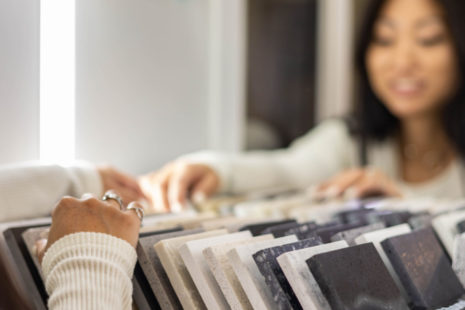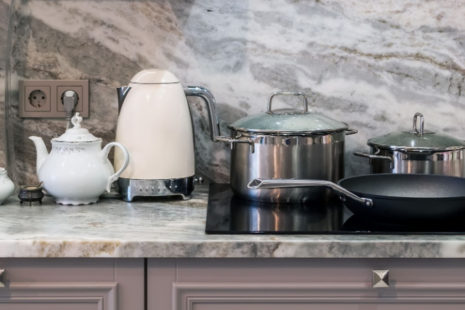Granite countertops are a popular choice for homeowners due to their durability, aesthetic appeal, and natural uniqueness. However, one common question arises: does all granite need to be sealed? The answer isn’t a straightforward yes or no, as it depends on several factors, including the type of granite, its porosity, and how it’s used. This article explores the necessity of sealing granite countertops and provides guidance on how to determine if your granite needs sealing.
Understanding Granite and Its Porosity
Granite is a natural stone composed mainly of quartz, feldspar, and mica. Each slab of granite is unique, with its own variations in color, pattern, and porosity. Porosity is a crucial factor in determining whether granite needs to be sealed. Porous granite absorbs liquids, which can lead to staining, whereas less porous granite is more resistant to stains and may not require sealing.
Factors Influencing the Need for Sealing
- Type of Granite
- High Porosity Granites: Some types of granite, especially lighter-colored ones, are more porous and prone to absorbing liquids. These granites generally require sealing to protect them from stains.
- Low Porosity Granites: Darker granites, such as Black Galaxy or Absolute Black, tend to be less porous and may not need sealing. Their dense structure makes them naturally resistant to stains and liquids.
- Usage and Location
- Kitchen Countertops: Granite used in kitchens is more likely to come into contact with food, liquids, and oils, increasing the risk of stains. Therefore, sealing is often recommended to provide an additional layer of protection.
- Bathroom Countertops: In bathrooms, granite countertops may be exposed to water and personal care products. While the risk of staining is lower than in kitchens, sealing can still help maintain the stone’s appearance.
- Outdoor Countertops: Granite used outdoors is exposed to the elements, including rain, sun, and temperature fluctuations. Sealing can help protect outdoor granite from weather-related damage and maintain its look over time.
How to Determine if Your Granite Needs Sealing
To determine whether your granite needs sealing, you can perform a simple water test:
- Clean a Small Area: Ensure the area is clean and dry.
- Apply Water: Pour a small amount of water onto the granite surface.
- Observe: Let the water sit for 10-15 minutes, then wipe it away.
- If the Water Is Absorbed: If the granite darkens where the water was applied, it indicates that the stone is absorbing moisture and should be sealed.
- If the Water Sits on the Surface: If the water remains on the surface and the granite doesn’t darken, it suggests that the stone is not very porous and may not need sealing.
Benefits of Sealing Granite
Sealing granite offers several advantages:
- Stain Resistance: A good sealant creates a barrier that prevents liquids from penetrating the stone, reducing the risk of stains from food, drinks, and oils.
- Ease of Cleaning: Sealed granite is easier to clean, as spills remain on the surface, allowing you to wipe them away quickly and easily.
- Prolonged Lifespan: By protecting the stone from damage and stains, sealing can help maintain the granite’s appearance and extend its lifespan.
How Often Should Granite Be Sealed?
The frequency of sealing granite depends on the type of granite, its usage, and the quality of the sealant used. Generally, it is recommended to seal granite countertops every 1-3 years. However, high-traffic areas or heavily used countertops may require more frequent sealing.
Conclusion
Not all granite needs to be sealed, but many types benefit from the added protection. Factors such as the type of granite, its porosity, and how it is used will influence the necessity and frequency of sealing. By performing a simple water test, you can determine whether your granite needs sealing and take the necessary steps to protect your investment. Sealing granite can help maintain its beauty, enhance its durability, and ensure it remains a stunning feature in your home for years to come.




